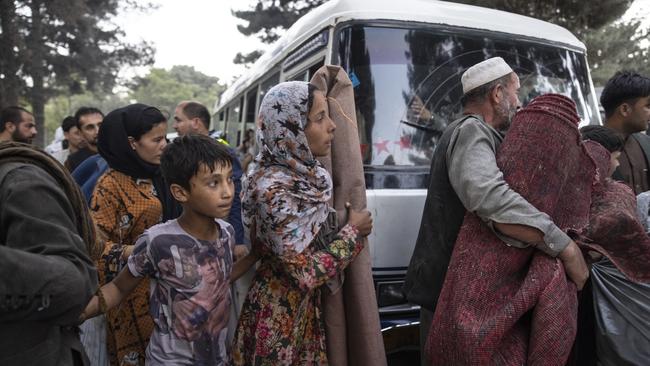New wave feminists abandon Muslim sisters

Afghan women and girls are fleeing the Taliban. But this cause for alarm has met a seemingly inexplicable silence by the international feminist movement.
As they capture more territory, the insurgents forbid women from leaving the house without a male relative and ban girls from school.
Families are ordered to surrender women and girls for marriage to Taliban fighters, and local mullahs and tribal elders are summoned to deliver lists of eligible females. These demands are consistent with the Taliban’s extremist interpretation of Islamic sharia that asserts women are chattels to be ceded as spoils of war.
The scenario of unrest bodes ill for Afghan women and children, who have been the main victims of violence and displacement during decades of internecine conflict.
When the Taliban ruled Afghanistan between 1996 and 2001, women and girls were stripped of education, employment, and medical care. Girls older than eight were barred from school. Besides work in the poppy fields, women were prohibited from employment outside the home, forcing thousands of war widows to beg on the streets. Mandatory burkas concealed women’s bodies, leaving a small mesh opening for the eyes. The penalty for uncovered ankles was flogging, and for sex outside marriage, death by stoning. Without a male escort, women were unable to access even the substandard hospital care they were allocated. According to the Taliban, however, all these restrictions were imposed for women’s own protection.
In the two decades of occupation by coalition forces, Afghan women gained precious rights, despite Taliban control in provincial strongholds, and a predominantly patriarchal society, where domestic violence and “honour killings” were endemic. Over 3000 health centres were established, and maternal mortality fell by about 40 per cent. The number of girls in secondary education rose by a third, with 100,000 reaching university. Women voted in elections, ran for political office, and became MPs and judges, who fought corruption and discrimination.
In defiance of murder, intimidation, and harassment, advances in female empowerment were achieved through determined grassroots efforts, aided by coalition partners and humanitarian organisations. Australian government and NGO support provided women with access to health, education, and financial services. The Indigo Foundation built schools in a remote, impoverished areas, and the Afghan Peace Scholars project identified reform-minded female law students, who received travel grants from UNIFEM/UN Women Australia. These young women furthered their studies in Australian universities, with the aim of using the experience in rebuilding their country.
Apart from the American Feminist Majority Foundation, major international feminist organisations have shown little support for Afghan women, now, during the past 20 years, or previously.
Feminists argue the call to liberate women from the Taliban was a pretext for the invasion and prolonged occupation. This narrative fits the anti-colonial feminist position, consistent with blaming an imperialist Christian West for oppressing the Muslim world.
Yet the reasoning is not convincing. The US did not invade Iran, but the feminist movement has largely ignored institutionalised gender persecution in the Islamic Republic.
Clearly, the oppression suffered by Afghan and Iranian women should be abhorrent to feminists, as well as Western-educated Muslim women committed to “social justice”. Instead, the Taliban’s flagrant persecution is disregarded. For feminists to overlook gender violence and discrimination anywhere is a betrayal of women’s rights. How much more so when the perpetrator is one of the worst offenders in the world.
Many second-wave feminists from the 70s have upheld the values of first-wave suffragettes. Campaigning for equal pay, reproductive rights, and the end of sexism, they are often perturbed by the inflamed identity politics of third- and fourth-wave feminists, preoccupied with transgenderism, intersectionality, Marxist theory, and the overthrow of capitalism.
In their current politicised trajectory, feminists have strayed far from basic women’s rights issues. They have lost the moral compass of their predecessors and forgotten a central purpose: the wellbeing of women. Blinkered by self-absorption and narrow focus, third- and fourth-wave feminists appear detached from the brutality and restrictions that beset Afghan women. Such oversight, tantamount to insult and condescension, is a stain on feminism’s towering and transformative power as a revolutionary movement.
Mobilisation of the powerful international feminist movement could assist women fleeing from Taliban barbarity. Long-term support could prove crucial for activists attempting to conserve hard-won gains, and provide encouragement for the new, educated, and enlightened generation.
Ida Lichter is the author of Muslim Women Reformers: Inspiring Voices Against Oppression


